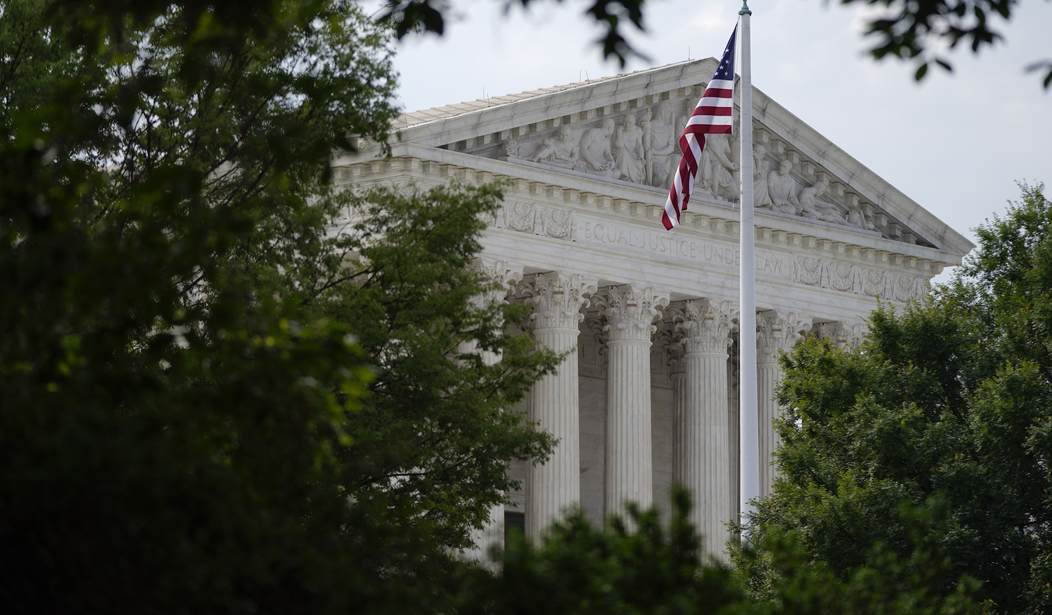This column is co-written by Lance Izumi and Wenyuan Wu.
For years, as government-sanctioned racial discrimination was eliminated in most spheres of American life, race-based discrimination continued to fester in university admissions. However, a case involving alleged racial discrimination against Asian Americans at Harvard and the University of North Carolina, which is now before the U.S. Supreme Court, may finally put a stake through the heart of race-based preference policies.
The plaintiffs in the case charge that Harvard and UNC favored certain minority applicants, such as African Americans and others, while disadvantaging Asian Americans. Not only does empirical data show that these systems discriminated against Asians, the history of civil rights in America underscores the moral bankruptcy of these admissions systems.
At Harvard, Duke University economics professor Peter Arcidiacono examined two decades of admissions data and found that Asian Americans had the highest combined score for standardized testing and high-school performance. Yet, Asians had the lowest admissions rate.
According to Arcidiacono, "an Asian-American applicant who is male, is not disadvantaged, and has other characteristics that result in a 25% chance of admission," would have had a 36% chance of admission if he were White, a 77% chance of admission if he were Hispanic, and a 95% chance of admission if were African American.
To reduce Asian admission numbers, Harvard used subjective personal ratings, including traits such as likability, integrity, and kindness, to lower ratings for Asians and raise ratings for applicants of other races.
Arcidiacono concluded that eliminating race preferences in Harvard's admissions system would have increased Asian-American admissions by more than 46% over a six-year period.
Recommended
Similarly, data shows that African-American applicants at UNC, with certain high school grade-point averages, were admitted to the university at massively higher rates than Asian applicants with the same GPAs.
While statistics show obvious racial discrimination against Asian Americans at Harvard and UNC, it is also important to put this discrimination into the context of America's long fight for racial equality.
Despite the passage of the 14th and 15th Amendment, which sought to guarantee equality and freedom for Americans of all races, Jim Crow segregation laws still proliferated into the middle of the 20th Century. It took the civil rights movement to give true meaning to the constitutional principle of equal protection of the law.
The spirit of the civil rights movement was non-discrimination and equal treatment. Measures to level the playing field for racial minorities who did not have equal rights were never meant to endorse preferential treatment.
Indeed, the historic 1964 Civil Rights Act says that no person, based on race, can "be subjected to discrimination under any program or activity receiving Federal assistance." Both Harvard and UNC receive federal tax dollars.
Asian Americans, including many first-generation immigrants, have risen up to hold institutions accountable to the non-discrimination guarantees of the Constitution and federal and state laws.
In 2015, more than 60 community organizations joined the Asian American Coalition for Education to file a federal civil rights complaint against Harvard. By May 2022, a joint effort led by the AACE encompassed 370 Asian-American organizations to support the plaintiff's challenge of the Harvard admissions system.
This bottom-up movement, spearheaded by Asian Americans, goes beyond narrow racial identity politics and self-interest. Believing in the promise of equal rights for all, this grassroots movement seeks to vindicate the anti-discrimination ideals of the civil rights movement.
Asian Americans have succeeded upholding these ideals in even the bluest states. For example, in California in 2020, Asians were the catalyst in stopping Proposition 16, which would have overturned the state's guarantee against discrimination based on race in public education, employment, and contracting.
The anti-race-discrimination activism of Asian Americans reflects the sentiment of most Americans, with survey data finding that 73% of Americans, including large majorities of African Americans and Hispanics, opposing race as a factor in college admissions.
While the Left talks incessantly about systemic racism, AACE president Mike Zhao says, "Race-based admission is systemic racial discrimination against Asian Americans and should be totally banned." The Supreme Court now has the opportunity to make equal protection of the law a reality for all Americans, regardless of race.
Lance Izumi is senior director of the Center for Education at the Pacific Research Institute. Wenyuan Wu is executive director of Californians for Equal Rights Foundation. The are the co-authors of an upcoming book on critical race theory in public education.

























Join the conversation as a VIP Member